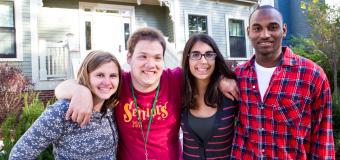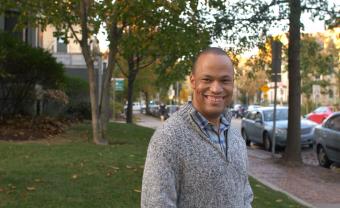However, CTP programs are not the only type of college-based transition program available. There are also community-based transition programs that provide services to young adults with disabilities.
Whether you decide to pursue a CTP program, another college-based transition program, or a community-based program, use this checklist to find your best options.
1. Start early.
Many students might start thinking about college in their sophomore year, but don't begin searching in earnest until their junior year. Procrastinators might not start looking until their senior year. This is too late for a student with disabilities looking for a transition program.
While their non-disabled peers have many options—including community colleges—the options for students searching for a transition program are limited.
Some transition programs are more competitive than colleges, accepting less than half of all applicants. Furthermore, many of these programs are small. Some of the “larger” programs may accept 25 students in an incoming class. Starting early allows you to identify the skills your student might need to develop before going to one of these programs, and gives you time to identify funding sources.
2. Do your homework.
Learn the differences between community-based and the college-based transition programs. Identify funding sources, how you might access those funds, and the timelines to access those funds. You might need as long as a two-year window between starting to access those funds and your student starting a transition program.
3. Begin with an online search.
This will help you learn about the programs available nationally. Thinkcollege.net is an excellent place to begin. Through their website the organization helps families locate college options for students with intellectual disabilities.
4. Talk to other families of children with disabilities.
Some families may have older children who have been through the search process. Their student may have completed a transition program and they can tell you about their experience. You might find these families at your child’s school, through Special Education Parent Teacher Associations (SEPTAs), or via nonprofit organizations that are specific to your child's disability type.
5. Consult with school district personnel.
Talk to guidance counselors, the special education director, special education teachers, and transition coordinators in your school district. Where have their special education students have gone after leaving the district? Where would they recommend you look, given your student’s learning profile and needs?
6. Contact special needs summer camp directors.
Summer camp directors stay in touch with their campers. They know where their campers go after high school. Many have relationships with college-based and community-based transition programs. Ask for their recommendations.
7. Consider hiring an independent educational consultant.
Choose a consultant who specializes in placing students with disabilities in post-secondary programs. Contact the Independent Educational Consultants Association and ask for a list of consultants with this expertise in your area.
8. Go to transition fairs and disability conferences.
These types of fairs or conferences often have exhibition halls where vendors and representatives from transition programs share information about their services. Academic conferences are less helpful in helping you locate transition programs.
9. Ask program representatives about outcome data.
Once you've identified a few possibilities, go deeper in your research. Ask questions like:
- How long has the program been in existence?
- How many students and alumni do they have?
- What percentage of their graduates are employed?
- How many hours do their graduates work on average?
- What percentage pay their own rent or mortgage?
- What percentage live independently?
- How many are married or have a long-term partner?
- What percentage of their graduates are satisfied with their social lives?
These are all important outcomes. If a program doesn’t collect these data, then you may want to consider looking at another program.
10. Involve your student in every step.
Teens with disabilities are no different than any other teen. They want the ability to make their own decisions. Students might reject a program that's a good fit for them solely because it was their parents’ idea.
Explore programs together, starting with the online search. Go to open houses together. Ask your student if they can picture themselves in the program with the students they're meeting. Encourage them to ask current students what they like and dislike about the program.
Choosing a college or a transition program is an emotional decision. Ask your student what their gut tells them. Does the program feel right to them? You may think a certain program is the best choice, but your son or daughter is the one who actually must attend the program.
Learn More
The Threshold Program is a college-based post-secondary transition program located in Cambridge, Massachusetts. The program helps young adults with diverse learning needs transition into the world of work and independent living.


